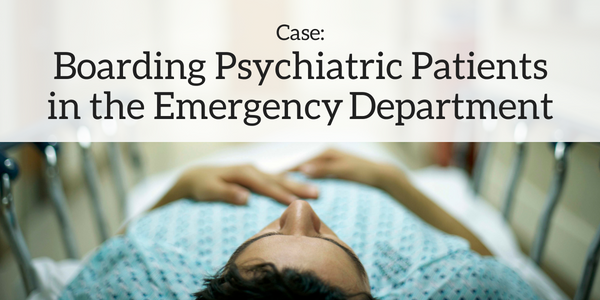Blog & Articles
Case: Risks of Misdiagnosed Orthopedic Injuries

[7 min read]
Editor’s Note: The TSG course on high-risk orthopedic injuries has been updated. The following includes two case reviews and a summary of important issues from that course.
High Risk Orthopedic Injuries
Orthopedic injuries, particularly those involving the extremities, carry a significant risk of complications if not promptly and accurately diagnosed. Conditions such as compartment syndrome, open fractures, and joint dislocations often present subtly, especially in early stages, and require a high index of suspicion from clinicians. When key elements—like mechanism of injury, neurovascular assessment, or timely imaging—are overlooked or poorly documented, the chances of a missed diagnosis increase dramatically.
Case: Recognizing Stroke Mimics and Chameleons

[5 min read]
Editor’s Note: The TSG course on Stroke Mimics: Pearls and Pitfalls has been updated, one of several stroke/TIA offerings. The following includes a case review and a summary of important issues from that course. Timely and accurate recognition of neurologic deficit and stroke remains at the forefront of emergency medicine risk management and patient safety.
Stroke Mimics: Pearls and Pitfalls
Accurate recognition and management of stroke are critical not only for patient safety but also for minimizing medical-legal risk. Strokes are among the most time-sensitive medical emergencies, and delays in diagnosis can lead to irreversible neurological damage and expose providers to liability. Conversely, mistakenly treating a patient who is experiencing a stroke mimic as though they are having a true ischemic stroke—particularly by administering thrombolytics like IV tPA—can lead to serious complications, including hemorrhage, misdiagnosis, and harm from delayed identification of the actual condition. These situations are also a significant source of malpractice claims, especially when clinical documentation fails to demonstrate thorough reasoning or appropriate caution.
Case: The Critical Role of POCUS in Modern Clinical Practice

[3 min read]
Editor’s note: TSG has created a new on-line course with a spotlight on Point of Care Ultrasound (POCUS). Emergency physicians and other specialties embracing this technology should be aware of important current issues related to POCUS. What follows is a summary and case example from the course.
POCUS: Evolving Standards of Care
Point-of-care ultrasound (POCUS) is rapidly transforming clinical practice by bringing real-time diagnostic imaging to the bedside. Once considered a niche tool in emergency departments, it is now used across multiple specialties to improve diagnostic accuracy, guide procedures, and accelerate clinical decision-making. From central line placement to the evaluation of trauma and abdominal aortic aneurysm (AAA), POCUS is helping clinicians make faster, safer, and more informed decisions that enhance patient outcomes.
Patient Safety and Nurse Turnover Rates

The shortage of nursing professionals is a growing global crisis that significantly impacts patient safety and healthcare delivery systems. Emergency departments (EDs) are particularly impacted, as there are not many nurses still working in EDs who have more than a few years of experience. The importance of an experienced and effective nursing team cannot be overstated both in and outside of the ED. The nursing shortage has a direct impact on patient safety, so this is a good subject for this week’s discussion.
Case: Boarding Psychiatric Patients in the ED

Recent studies demonstrate that about 7% of all emergency department (ED) patients present with a mental health condition. Because of the unique risks associated with psychiatric patients, coordinating their care and admission has proven to be a challenge for emergency practitioners. Here we present a case that highlights the risks of boarding patients in the ED.
Hospital Triage Assessment: An Under-Appreciated Risk?
.png)
Triage is an essential part of any busy emergency department (ED), but it is often undervalued. While triage is not designed to determine the cause of a patient’s symptoms, it prioritizes the patient’s need to be seen by a provider. EDs often assume (possibly erroneously) that triage assessments are being performed correctly or that any errors in triage can be corrected when the medical screening is done. Both assumptions can lead to serious adverse patient events.




